Both Hyundai and automotive giant Bosch Mobility are pursuing hydrogen energy, inspired by recent federal investments.
People view the LG Alpha-able future mobility concept at the LG booth during the CES tech show Tuesday, Jan. 9, 2024, in Las Vegas. [Photo: AP Photo/John Locher]
While electric vehicles are gaining the lion’s share of the attention for carbon-neutral technology at CES 2024, hydrogen energy has snuck its way back into the conversation thanks to two automotive giants.
Hyundai spotlighted its plans for utilizing hydrogen energy at the sprawling tech and gadget show in Las Vegas. Beyond making vehicles powered by hydrogen-powered fuel cells, the South Korean automaker signaled that it could work toward aiding a “hydrogen society” by expanding into energy production, storage, and transportation.
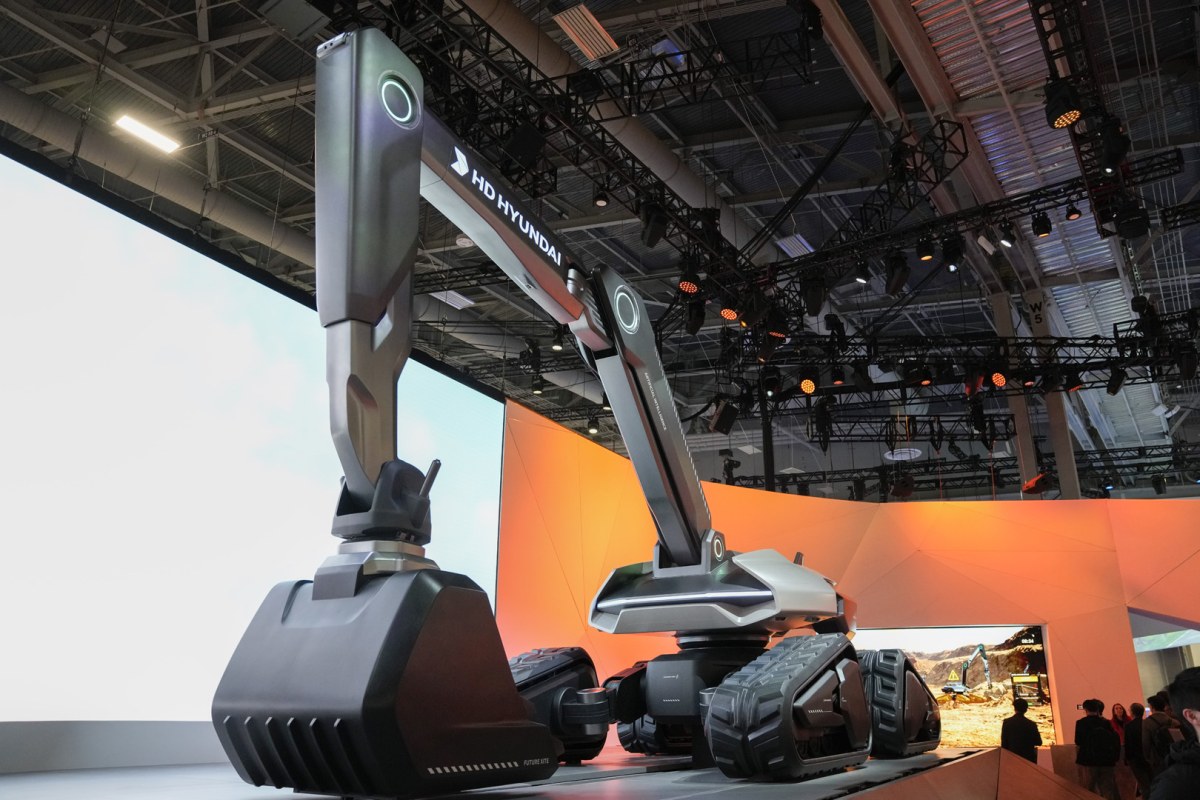
A concept of a fully electronic autonomous excavator, themed as Xite Innovation, is displayed at the HD Hyundai booth during the CES tech show in Las Vegas. [Photo: AP Photo/Ryan Sun]
It’s already technologically feasible, and it will eventually make sense economically, too, José Muñoz, president and global chief operating officer of Hyundai Motor Co., predicted Monday.
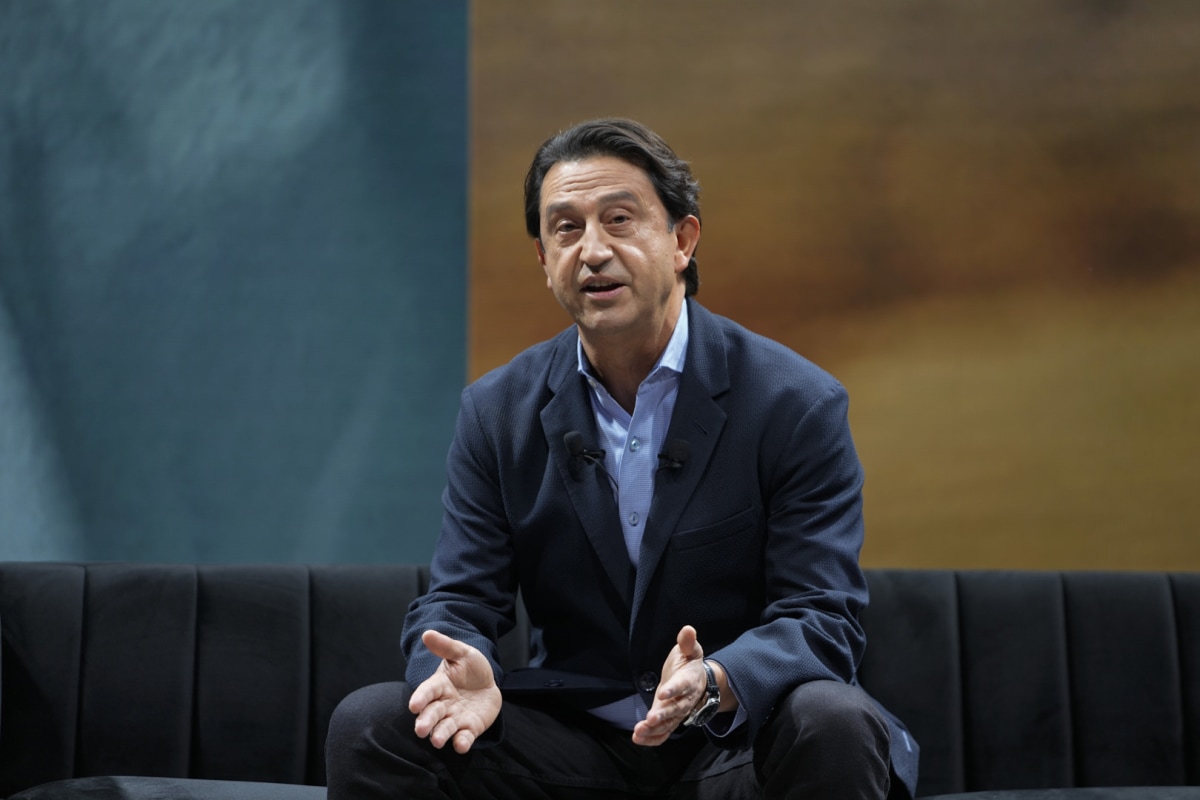
Jose Munoz, president and global CEO of Hyundai Motor Company, speaks during a Hyundai news conference before the start of CES. [Photo: AP Photo/Ryan Sun]
Meanwhile, automotive supplier Bosch Mobility plans to launch its first hydrogen combustion engine this year—another key step toward reducing global man-made carbon emissions, the company said during its CES 2024 event.
Both Bosch and Hyundai say they’ve been encouraged to move forward with their respective initiatives because of investments such as the $7 billion that the U.S. government is pouring into the development of hydrogen infrastructure.
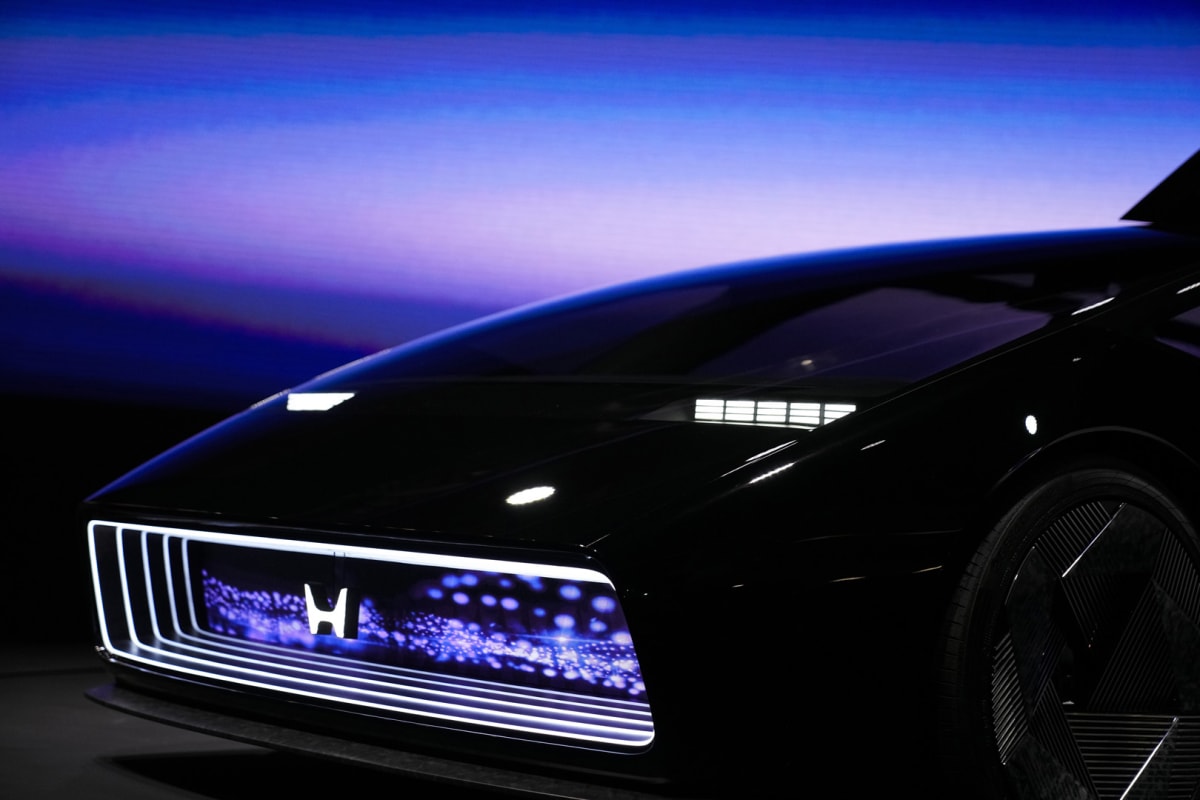
The newly unveiled concept car, Honda Zero Series “Saloon” electric vehicle, is displayed during a Honda news conference at CES. [Photo: AP Photo/Ryan Sun]
“THIN, LIGHT, AND WISE” EVS
Honda on Tuesday unveiled two concept vehicles, dubbed the “Saloon” and “Space-Hub.” The Japanese automaker says the Zero Series approach for EV development focuses on models that are “thin, light, and wise,” with specific goals to minimize battery size and weight.
Kia, meanwhile, introduced a trio of electric vans that can quickly swap body modules from cargo haulers to taxis and other purposes. Production of the vans will begin in 2025 in South Korea.
And Vietnam-based electric upstart VinFast unveiled an electric truck concept. The midsize truck is dubbed the VF Wild.
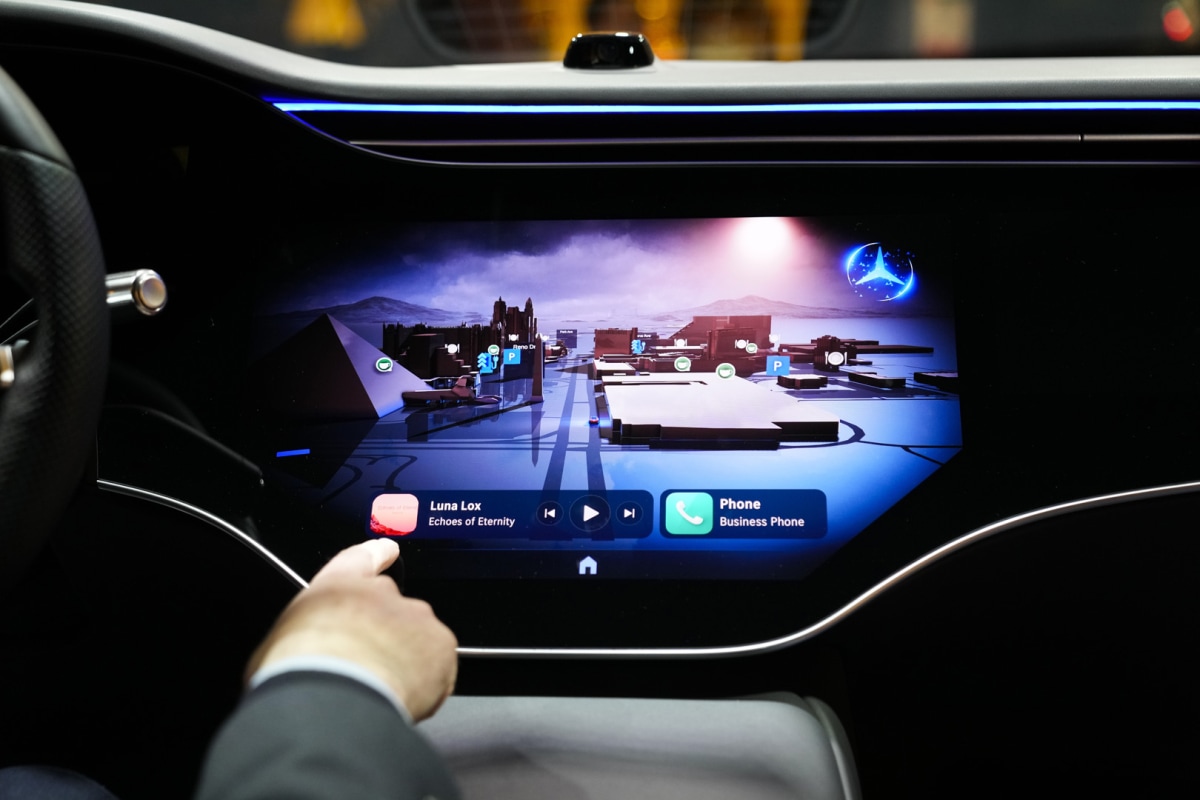
Vadim Weiss, Mercedes-Benz USA, gives a demonstration of the company’s new operating system, MBOS 1, during CES. [Photo: AP Photo/Ryan Sun]
IN-CAR TECH ECOSYSTEMS IMPROVE
Mercedes-Benz showed off updates to its infotainment systems, including a new AI-powered virtual assistant that strives to personalize interactions between drivers and their cars. The update will connect the AI with functions for automated driving, seating comfort, data displays, and charging.
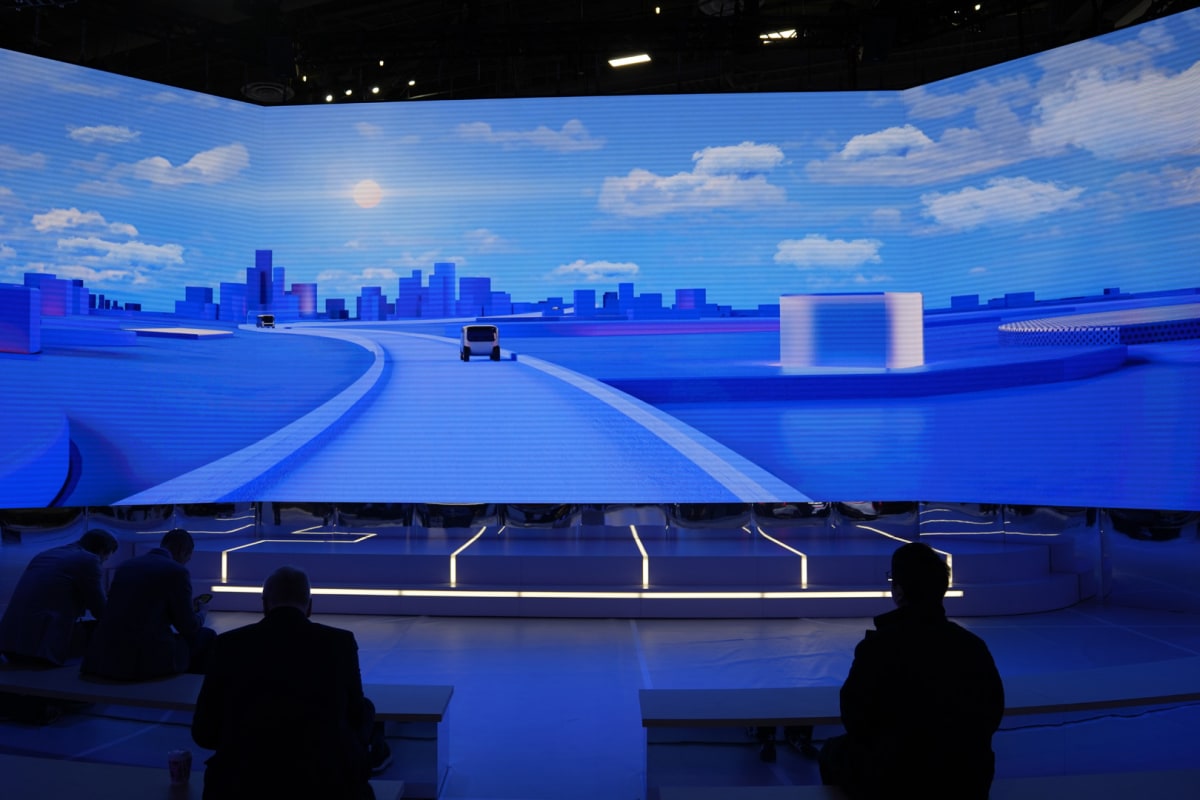
Attendees watch a video demonstration of Mobileye’s autonomous driving and advanced-driver technology. [Photo: AP Photo/Ryan Sun]
But while automakers like Mercedes are focusing on improving their proprietary in-car ecosystems, others are striking more partnerships with Google to preinstall apps such as Google Maps and Assistant in their vehicles, the tech giant revealed at CES 2024.
The Google built-in will come to select models from Nissan, Ford Motor’s luxury brand Lincoln, and others this year, with Porsche following suit in 2025. And even Mercedes-Benz is layering Google apps into its own technology.
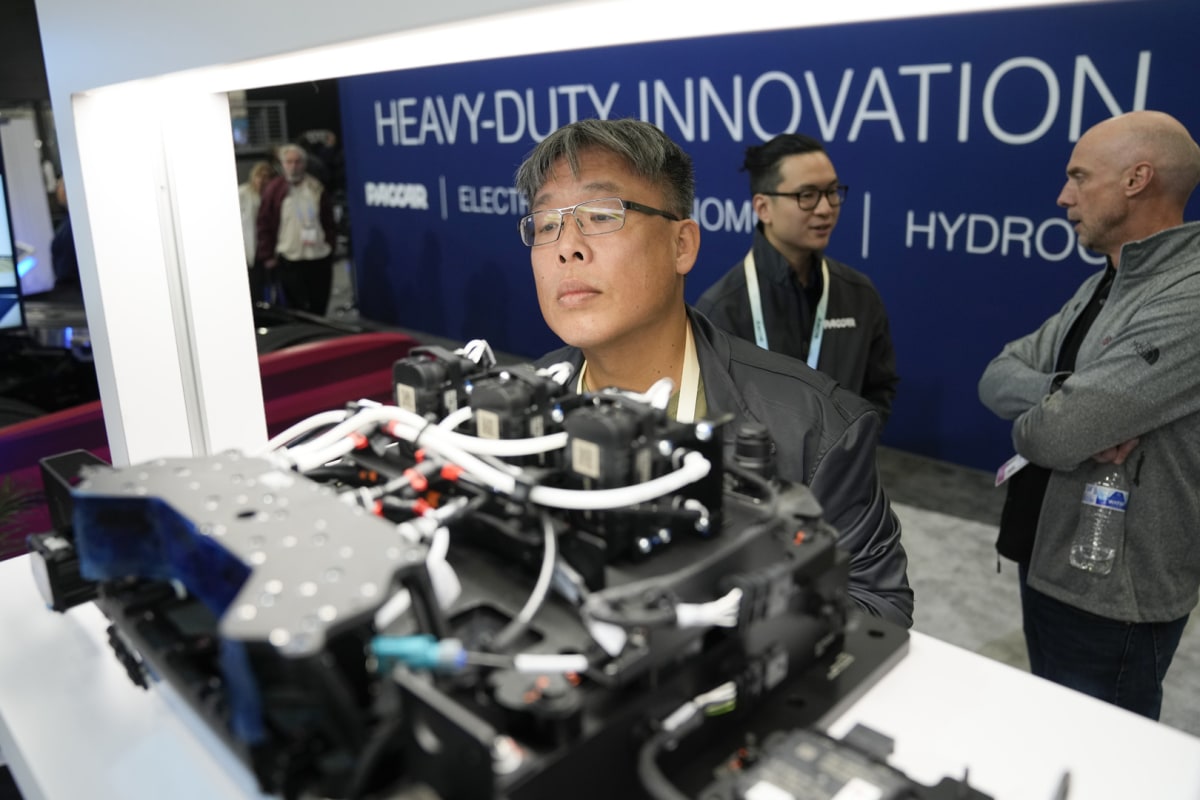
An attendee looks at Paccar components of a fuel cell electric vehicle during CES. [Photo: AP Photo/Ryan Sun]
WHAT’S THE LATEST ON SOLID-STATE BATTERIES?
Honda also touched on plans for its Zero Series and wider EV advances down the road—notably, the company’s independent development of solid-state batteries. In a Tuesday news conference, Executive Vice President Shinji Aoyama said Honda aims to apply solid-state batteries to the Zero Series by the late 2020s.
Solid-state batteries are widely believed to be essential for mass commercialization of battery-powered EVs. Today, lithium-ion batteries are more commonly used in EVs, but are prone to fires. Solid-state batteries are more stable and potentially more powerful.
Honda Motor’s Mitsuru Kariya, who leads the research and development group behind the EV tech announced Tuesday, explained that solid-state batteries have higher energy density, which means they can be smaller while maintaining a good range with stronger outputs. This could also contribute to making EVs lighter, he said, potentially improving fuel economy.
Honda isn’t the only automaker with eyes on a solid-state battery future. Toyota, for example, recently agreed to work with Japanese oil company Idemitsu on technology solid-state battery production.
—Shawn Chen and Wyatte Grantham-Philips, Associated Press. AP reporter McKinnon de Kuyper contributed to this report.






